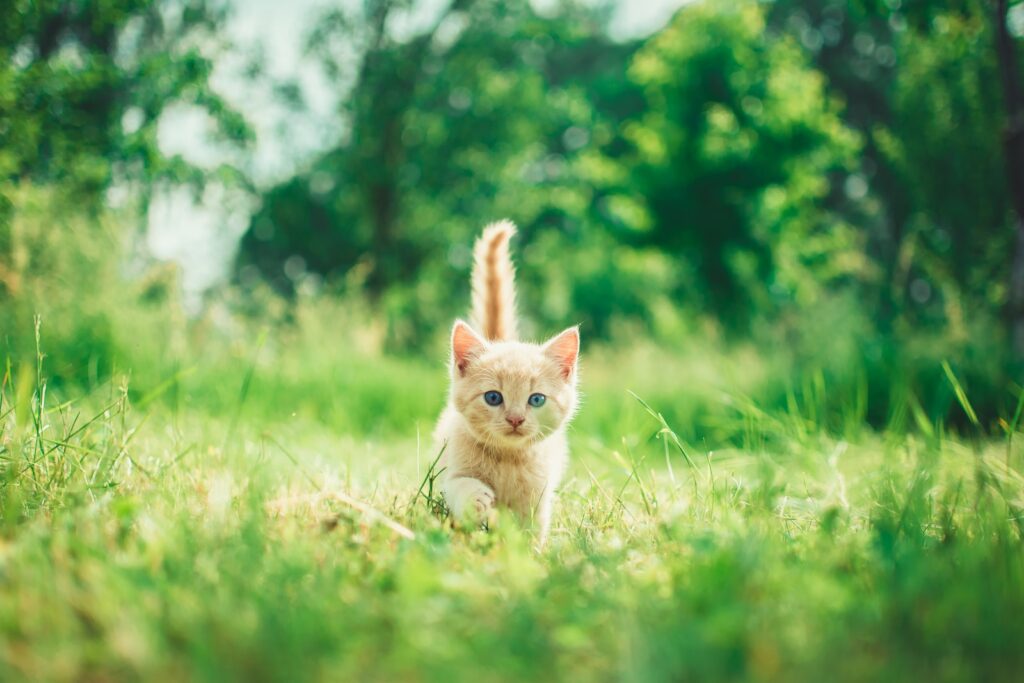Can Cats Eat Oats? — Yes, They Can
When it comes to oats, the good news is that cats can indeed eat them. Oats are a nutritious grain that can provide several health benefits for your feline friend when served in moderation and prepared correctly. However, it’s important to be aware of certain factors and considerations to ensure the well-being of your cat.
Can Kittens Eat Oats?
Yes, kittens can also eat oats. However, since kittens have delicate digestive systems, it’s essential to introduce oats gradually into their diet and monitor how they react to it. Always consult with your veterinarian before introducing any new food to your kitten’s diet.
Things to consider when feeding oats to kittens?
It is crucial to cook the oats thoroughly before feeding them to kittens, as raw oats can be difficult for their developing digestive system to process. Start with a small amount and observe their response to ensure they tolerate it well.
Nutritional Benefits of Oats for Cats — Why Oats are Good for Cats?
Oats provide essential fibers
Oats are a great source of dietary fiber, which helps regulate digestion and can prevent certain gastrointestinal issues in cats. It aids in maintaining healthy bowel movements and can reduce the risk of constipation.
Oats are rich in vitamins and minerals
Oats contain essential nutrients such as vitamin B, vitamin E, magnesium, and zinc, which contribute to a cat’s overall well-being. These nutrients support their immune system, promote healthy skin, and aid in proper brain function.
Oats can assist in weight management
Due to their high fiber content, oats can contribute to weight management in cats. It provides a feeling of fullness, preventing overeating and aiding in weight control. However, it’s important to consider the overall calorie intake and portion sizes when incorporating oats into their diet.
Oats may help with hairball control
The fiber found in oats can help prevent the formation of hairballs in cats. It aids in the natural elimination of hair ingested during grooming, reducing the chances of hairball-related issues.
Potential Allergies: Can Cats Be Allergic to Oats?
While allergies to oats are rare in cats, some felines may develop sensitivities or intolerances. It’s crucial to monitor your cat’s reaction when introducing oats for the first time. If you notice any signs of allergies or digestive issues, discontinue feeding oats and consult with your veterinarian.
Symptoms of Oat Allergies in Cats
- Digestive disturbances: Cats may experience vomiting, diarrhea, or increased flatulence.
- Itching and skin irritations: Allergic reactions can manifest as excessive scratching, redness, or skin rashes.
- Respiratory issues: In rare cases, cats may exhibit symptoms like coughing, sneezing, or difficulty breathing.
What to Do If Your Cat Shows Symptoms?
- Consult your veterinarian: If your cat displays any of these symptoms, it’s advisable to seek professional guidance.
- Eliminate oats from their diet: Remove oats from their meals and observe if the symptoms improve.
- Consider alternative food options: If your cat is allergic to oats, consult with your veterinarian for suitable substitution recommendations.
Recommended Amount: How Much Oats Can a Cat Consume?
When incorporating oats into your cat’s diet, it’s crucial to do so in moderation. Too much oat consumption can lead to an imbalance in their overall nutrient intake. As a general guideline, aim to provide a small portion of cooked oats as an occasional treat or addition to their regular meals.
Things to Consider When Feeding Oats to Cats
Keep in mind that oats should never replace a cat’s primary diet, which should consist primarily of high-quality cat food. Always introduce new foods gradually and monitor your cat’s response. If any digestive issues or allergies occur, discontinue feeding oats and consult with your veterinarian.
How to Feed Oats to Cats: A Quick Guide
Oats can be prepared and served to cats in a variety of ways. Here’s a quick guide to feeding oats to your feline friend:
Oatmeal Recipe
1. Cook plain oatmeal according to the instructions, without adding any sugar, salt, or other flavor enhancers.
2. Allow the oatmeal to cool down to room temperature before serving it to your cat.
3. Offer a small portion of oatmeal as an occasional treat or mix it with their regular wet or dry food.
Oats as a Topping
1. Sprinkle a small amount of cooked and cooled oats on top of your cat’s regular meals as a tasty and nutritious addition.
Oat Treats
1. Use oats as an ingredient to make homemade cat treats. There are various recipes available online that utilize oats as a base ingredient.
Conclusion
Oats can be a healthy and beneficial addition to your cat’s diet when served appropriately. They provide essential fiber, vitamins, and minerals, aid in weight management, and can assist in hairball control. However, it’s vital to introduce oats gradually and monitor your cat’s response for any potential allergies or digestive issues. As always, consult with your veterinarian before making any significant changes to your cat’s diet.






